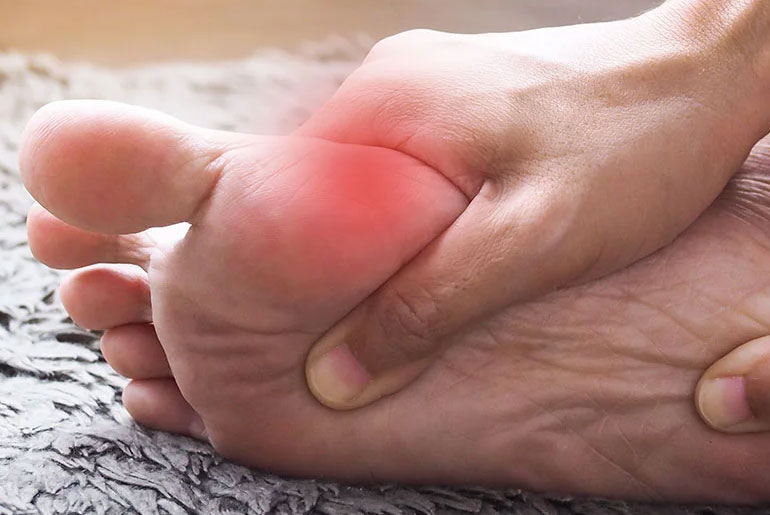To relieve high uric acid levels, it is essential to focus on reducing inflammation and promoting the elimination of excess uric acid from the body. This can be achieved through lifestyle changes such as staying hydrated, avoiding purine-rich foods (like red meat, seafood, and alcohol), and incorporating a balanced diet rich in fruits, vegetables, and whole grains. Certain natural remedies, such as drinking cherry juice, lemon water, and herbal teas like ginger or turmeric, may help lower uric acid. Regular exercise, maintaining a healthy weight, and managing stress are also crucial factors in preventing the buildup of uric acid crystals. In some cases, medications may be necessary under the guidance of a healthcare professional to control uric acid levels.
1. Lemon Water
- How it helps: Lemon water is an excellent source of vitamin C, which can help reduce uric acid levels. Vitamin C enhances the excretion of uric acid through the kidneys, helping lower its concentration in the blood. Additionally, lemon juice is alkaline-forming in the body, which may help balance pH levels and support kidney function.
- How to use: Squeeze half a lemon into a glass of warm or room temperature water. Drink this on an empty stomach in the morning for optimal results.
2. Alkaline Foods
- How it helps: Alkaline foods help balance the body’s pH and reduce acidity, which may support the elimination of uric acid and prevent its buildup. High acidity can lead to conditions like gout, so consuming alkaline foods can support kidney health and reduce uric acid levels.
- Alkaline foods to include: Leafy greens (spinach, kale, and lettuce), Cucumbers, Celery, Bell peppers, Avocados, Watermelon, Broccoli, Sweet potatoes
- How to use: Incorporate these alkaline foods into your diet by adding them to salads, smoothies, or as part of meals.
3. Gokshura (Tribulus Terrestris)
- How it helps: Gokshura is an herb widely used in Ayurvedic medicine for its ability to support kidney health and promote urination, which helps in flushing out toxins, including uric acid. It is also used to improve overall metabolism and reduce inflammation.
- How to use: Gokshura can be taken as a powder (1/2 to 1 teaspoon) with warm water or added to teas. Gokshura supplements are also available, but it’s best to consult an Ayurvedic practitioner for personalized dosage recommendations.
4. Coriander Seed Water
- How it helps: Coriander seeds are known for their anti-inflammatory, detoxifying, and diuretic properties. Drinking coriander seed water may help reduce uric acid levels by promoting urination and detoxification, aiding the body in eliminating excess uric acid. It can also help in reducing joint pain associated with gout.
- How to use: Boil 1–2 teaspoons of coriander seeds in a cup of water for about 10 minutes. Let it cool and strain. Drink this water once or twice daily for best results.
5. Fenugreek Seeds
- How it helps: Fenugreek seeds are known to reduce inflammation and help lower uric acid levels in the blood. They also promote better digestion and detoxification.
- How to use: Soak a tablespoon of fenugreek seeds overnight in water. In the morning, drink the water and consume the seeds on an empty stomach. Alternatively, you can grind the seeds into powder and mix with water or honey.
In conclusion, Ayurvedic remedies offer a holistic approach to relieving high uric acid levels and promoting overall health by focusing on natural healing processes. Herbal treatments like Guggulu, Triphala, Punarnava, and Turmeric, known for their anti-inflammatory and detoxifying properties, play a vital role in managing uric acid buildup and supporting kidney function. Along with these remedies, a balanced diet, adequate hydration, regular physical activity, and stress management are essential for long-term health. By integrating Ayurvedic principles with modern lifestyle practices, individuals can effectively manage uric acid levels and achieve optimal well-being. However, it is important to consult a healthcare professional before starting any new treatment regimen.
Disclaimer:
The information contained in this article is for educational and informational purposes only and is not intended as a health advice. We would ask you to consult a qualified professional or medical expert to gain additional knowledge before you choose to consume any product or perform any exercise.







